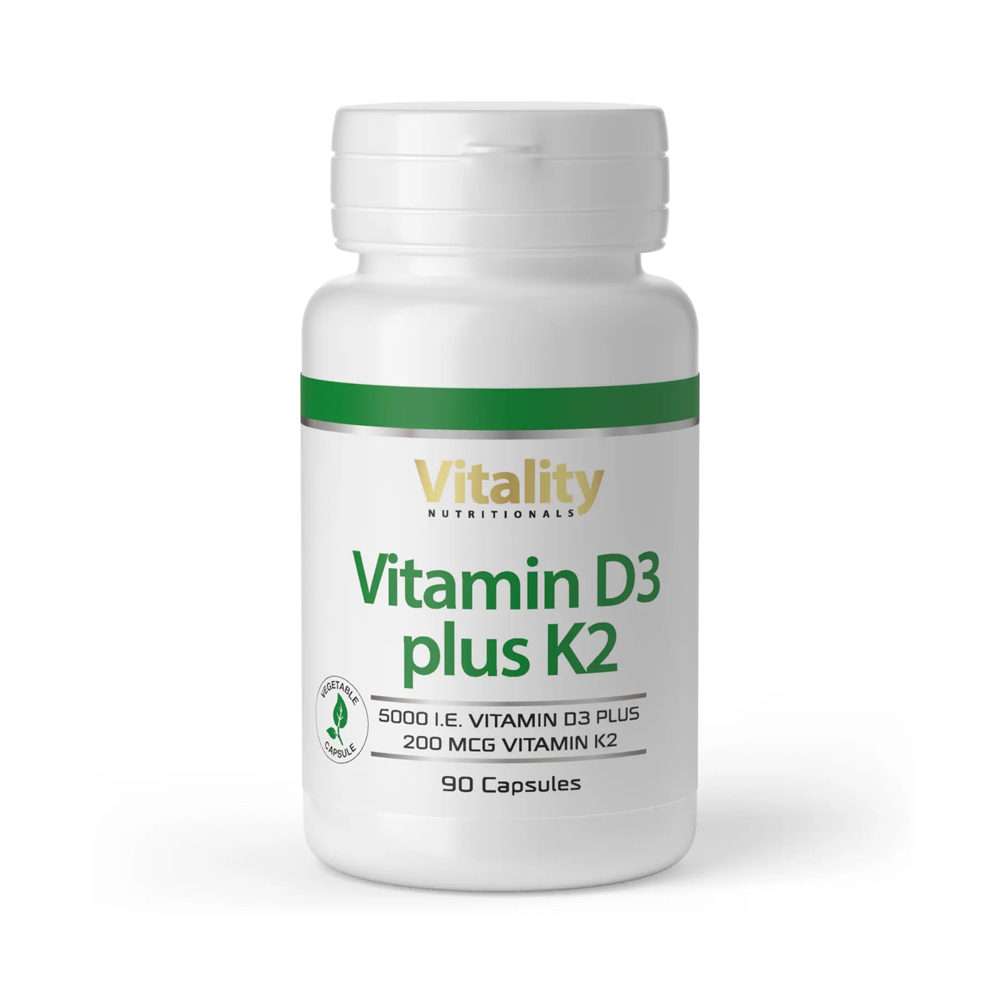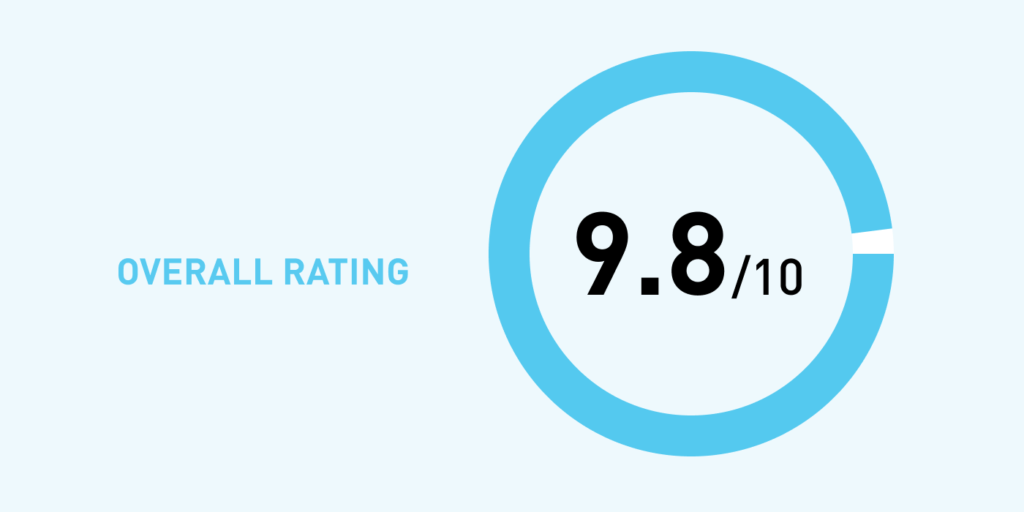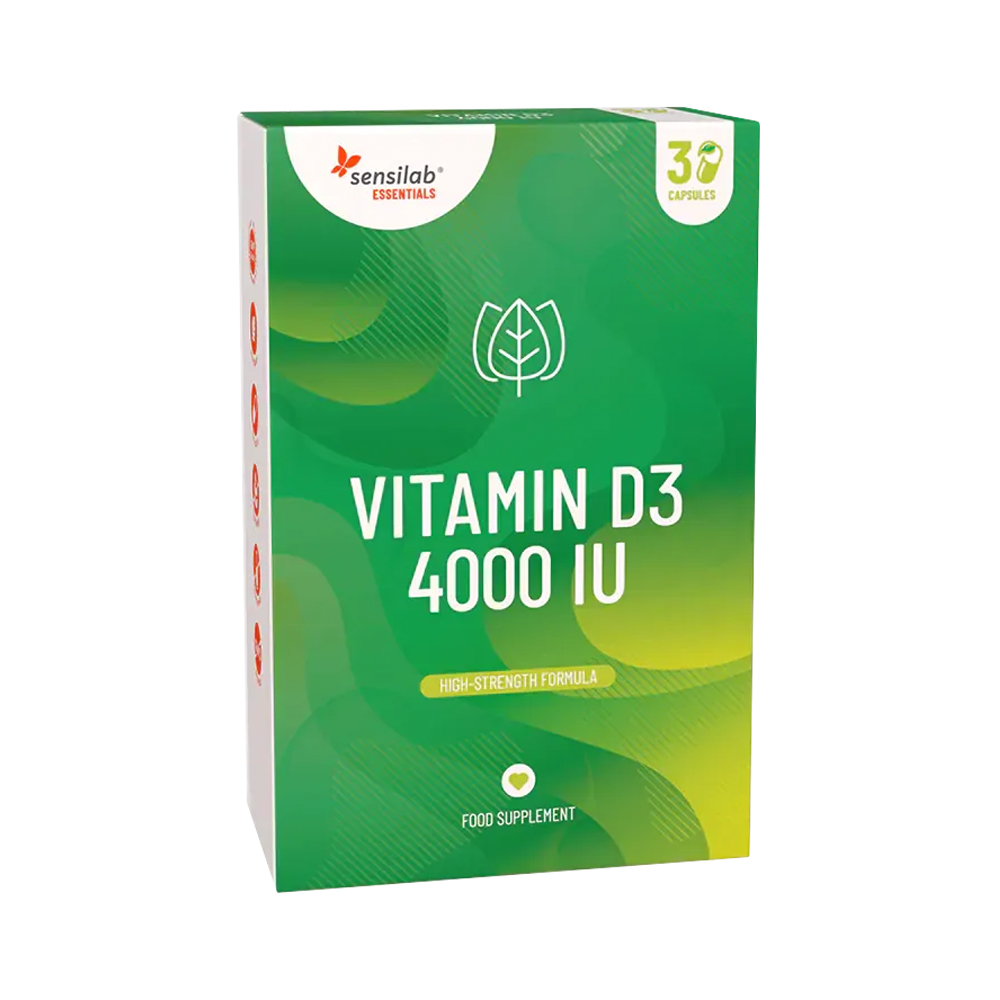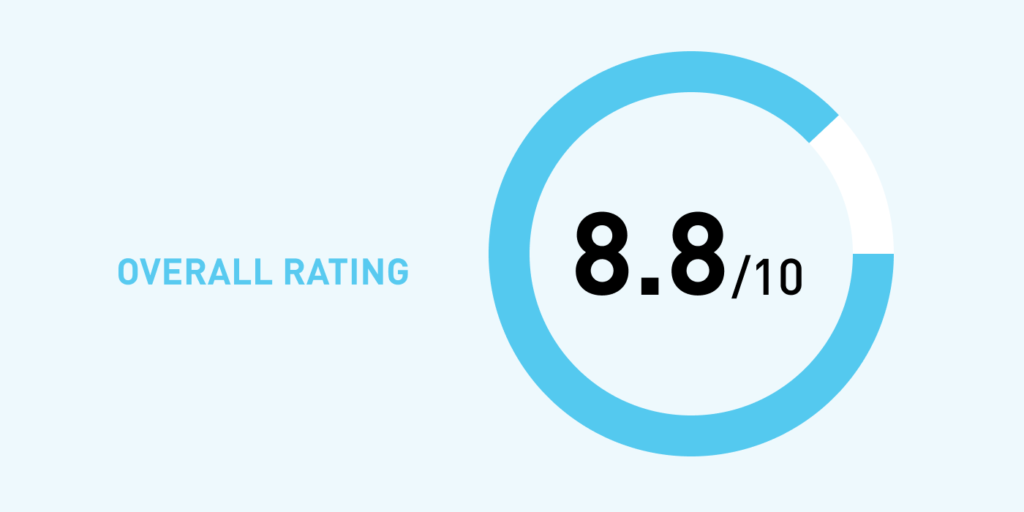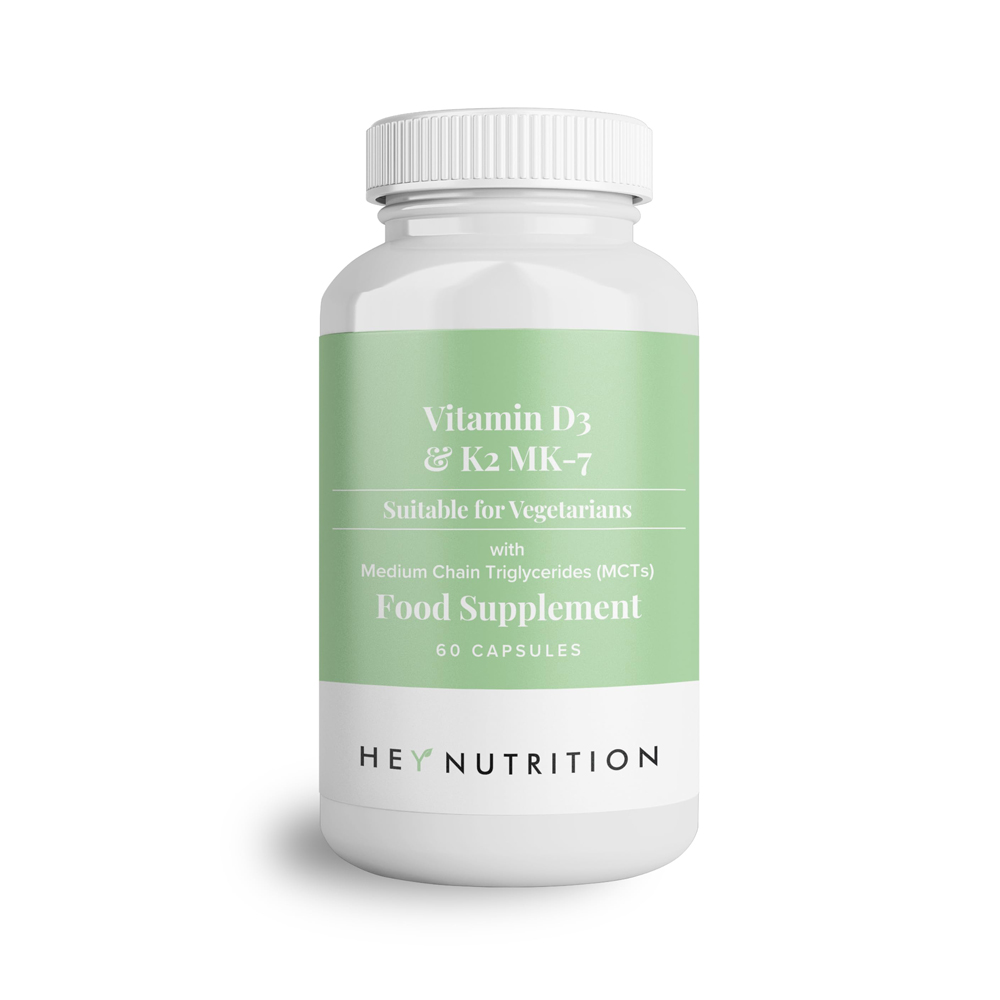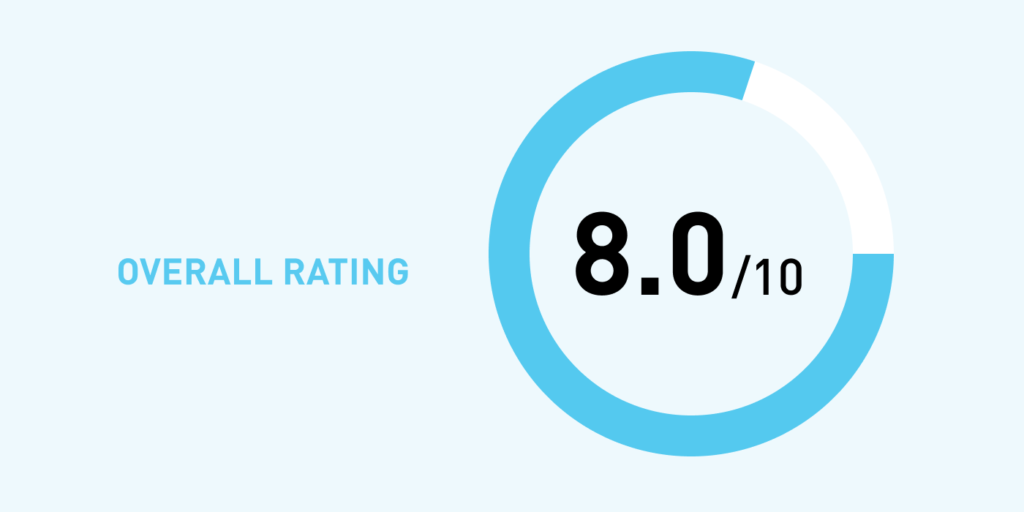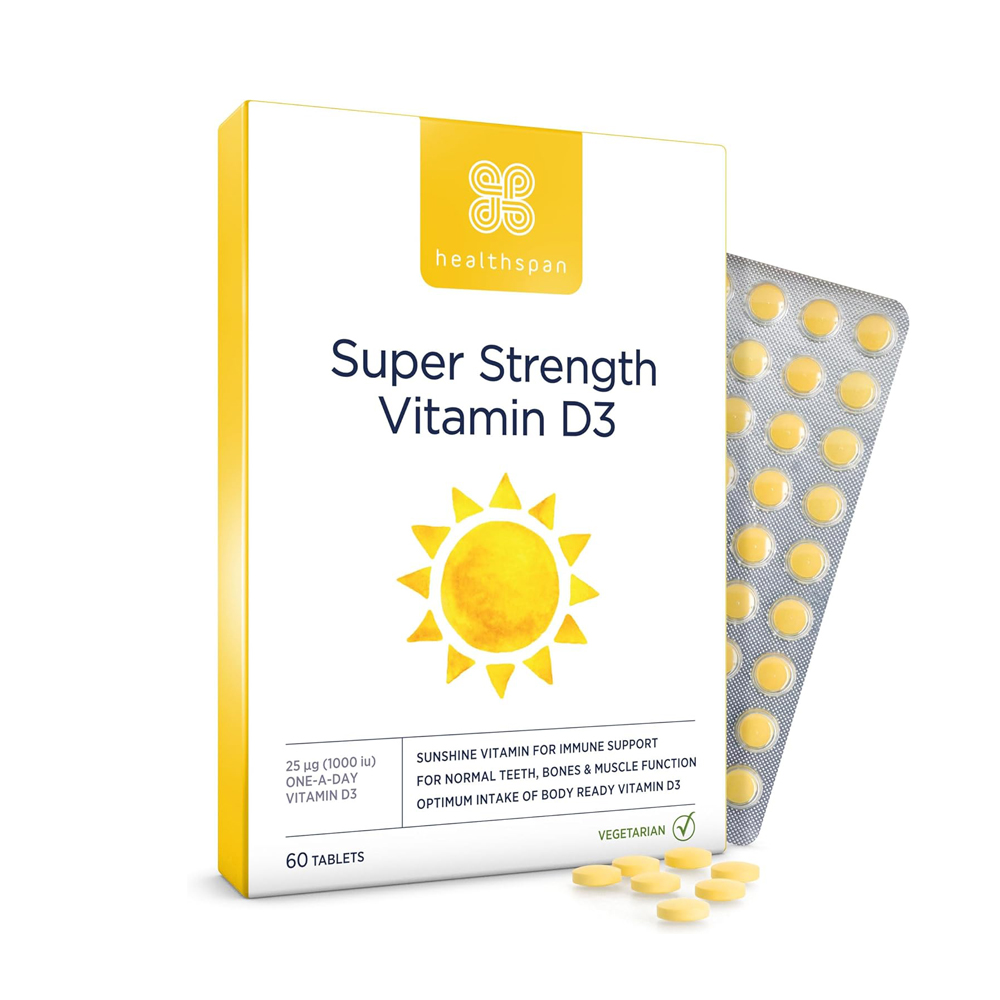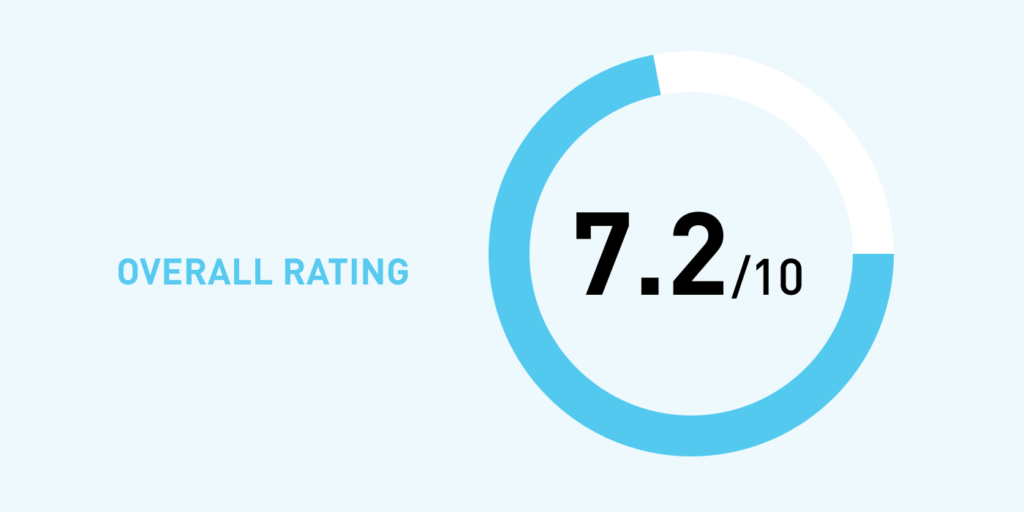Advertisement

Discover the top contender among Vitamin D3 plus K2 supplements. As dietary supplements with Vitamin D grow in popularity, it’s worth taking a closer look at the wide range of products available. Our recommendation: choose only the highest quality supplements, as your health is at stake.
Vitamin D may be familiar to you as the “sunshine vitamin.” This comes as no surprise, as the body’s production of this compound is primarily stimulated by UV-B radiation. This makes it quite unique: Vitamin D is the only vitamin that the human body can produce on its own. Because of this, it technically isn’t even a vitamin – but more on that later.
Rather than being a single substance, Vitamin D refers to a group of fat-soluble molecules known in scientific literature as calciferols. The most important form is Vitamin D3, also known as cholecalciferol.
Vitamin D is best known for its involvement in bone metabolism. It promotes the absorption of calcium and phosphate from the intestine and supports their integration into bones, playing a key role in bone mineralization.
The human body typically produces 80–90% of its Vitamin D through exposure to sunlight [1]. To maintain sufficient levels, it’s important to spend as much time outdoors as possible, as indoor lighting cannot stimulate production.
Surprisingly, diet only contributes 10–20% of Vitamin D supply. This is partly because foods rich in Vitamin D are rarely consumed in the United Kingdom.
Examples include:
- Fatty fish
- Cod liver oil
- Certain mushroom varieties
Especially people who mostly work in an office often struggle to spend enough time outside in the sun, making Vitamin D often used as a dietary supplement.
Find out the following exciting facts in this article:
- What makes the combination of vitamin D3 and K2 so special.
- Common myths about Vitamins D3 and K2 that have been debunked.
- Surprising facts about these vitamins you might not know.
- Key product features to consider when purchasing a combined supplement to ensure top quality.
- The current market leaders in Vitamin D + K products.
- Recommendations for finding the best product to suit your needs.
We are stronger together
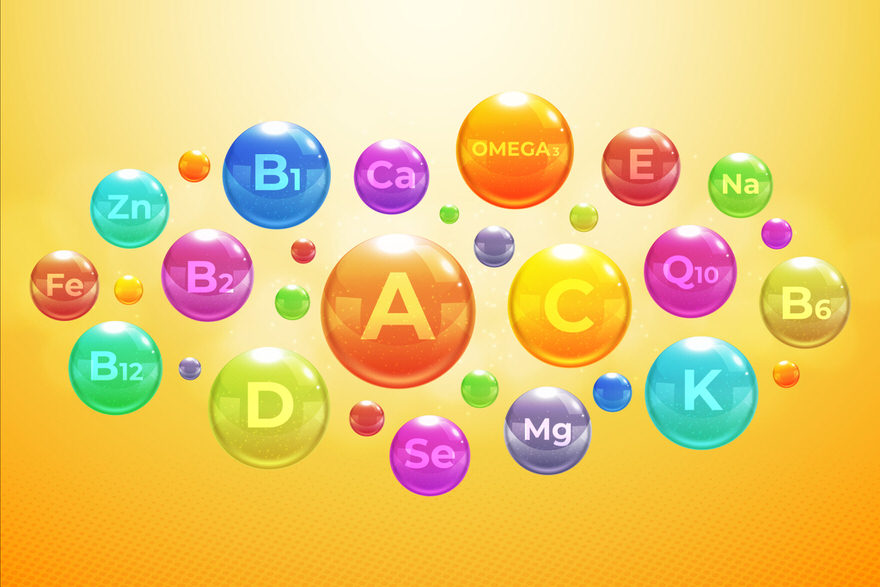
What makes the combination of vitamin D3 and K2 so special
Vitamins D and K form a powerful duo. Together, they support numerous metabolic processes, contributing to overall well-being. Vitamin D is particularly known for its role in maintaining healthy bones, normal calcium levels in the blood, and proper immune system function [2].
Additionally, Vitamin D contributes to:
- Cell division processes.
- Maintenance of healthy teeth.
- Normal muscle function.
Vitamin K also performs a number of vital functions in the body, playing a crucial role in supporting normal blood clotting, and like its “partner” vitamin D, it also contributes to the maintenance of normal bones. This synergy explains why Vitamin D3 and K2 complement each other so well and are often combined in supplements. However, as with practically all compounds, misconceptions about this combination persist.
Myths about vitamin D3 and K2: These rumors persist

Whether it’s food, vitamins or medication: there are rumors about almost every conceivable product. It would be unusual if this were different for vitamins D3 and K2. These rumors persist to this day, even though they have long been scientifically disproven.
Myth 1: Vitamin D and K2 can be adequately obtained through food
As previously mentioned, only a small amount of vitamin D is ingested through food.
This is primarily because very few foods contain significant amounts of Vitamin D, and these particular foods are consumed infrequently in the United Kingdom. Therefore, achieving sufficient Vitamin D intake through diet alone is generally not feasible.
Additionally, in our geographical region, there is often insufficient sunlight to adequately stimulate the body’s natural production of Vitamin D. Even during the summer months, unfavorable weather conditions can reduce UV-B radiation by up to 90% [1].
Although Vitamin K is found in a wider variety of foods (especially green vegetables such as broccoli, spinach, and kale), not everyone is able to meet their needs through their diet. Especially during stressful periods, people tend to eat less fruit and vegetables, making Vitamin K2 supplementation useful [3].
Myth 2: Vitamin D is easily overdosed
Although Vitamin D can be overdosed, but this would require consuming very large amounts far exceeding the manufacturer’s recommendations. An article in the Pharmazeutische Zeitung from the summer of 2022 describes a case where a person took 150,000 IU daily and experienced various symptoms [4]. The standard dosage available on the market typically ranges from 1,000 to 5,000 IU. Therefore, a quick overdose is unlikely as long as you stick to the dosage recommendations provided by the manufacturers.
Myth 3: The combination of vitamin D and K offers no real benefits
It has been scientifically proven that the combination of both vitamins is associated with various benefits for the body. Studies show a particularly beneficial effect for the skeletal system, as both vitamins contribute to maintaining normal bones [2, 5].
Surprising facts about vitamins D and K that you probably didn’t know
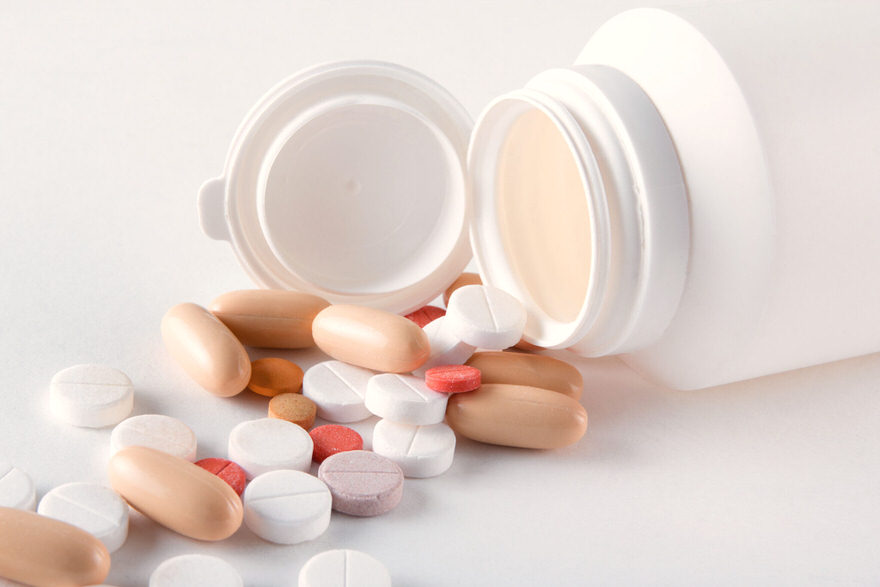
Many things are known about vitamins D and K, but these facts may surprise you:
Fact 1: Vitamin D is actually not a vitamin
The fact that the body can produce Vitamin D itself is unusual for something classified as a “vitamin.” In reality, it is technically a hormone. Why, then, is it not considered a vitamin? The answer lies in the definition: a vitamin is defined as an essential organic compound that the body cannot produce on its own [6]. However, the body can produce Vitamin D – as long as it receives enough sunlight.
Fact 2: Vitamin K and D deficiencies manifest through very different symptoms
Although Vitamins K and D are similar in their function, the symptoms of a deficiency in each are quite different.
Common symptoms of Vitamin D deficiency are:
- Muscle weakness
- Muscle and joint pain
- Fatigue and exhaustion
- Depressive moods (e.g., seasonal depression)
- Increased susceptibility to infections
- Excessive hair loss
In contrast, insufficient Vitamin K supply is more likely to present as:
- Increased tendency to bleed from wounds
- Easy bruising
- Gum bleeding
- Difficulty concentrating
- Lack of motivation
- Headaches
- Internal bleeding (in severe cases of deficiency)
Fact 3: Vitamin D production decreases with age, even with sufficient sunlight
As we get older, our body’s ability to produce Vitamin D declines. People over the age of 65 are particularly at risk for Vitamin D deficiency and should monitor their levels closely [7]. If you fall into this age group, it’s a good idea to discuss this topic with your GP.
You should pay close attention to these points when buying your combination product
If you’re considering using a combined Vitamin D and K supplement, it’s crucial to prioritize high quality. The market for dietary supplements is so vast that it’s easy to lose track. However, since this concerns your health, you should make no compromises when it comes to quality.
An ideal combined supplement should meet the following criteria:
- Sufficiently high doses of Vitamin D and Vitamin K
- Vitamins are in their natural forms
- Free from chemical additives
- High bioavailability and bioactivity of ingredients
- Capsule form (for best possible Vitamin D absorption)
- Free from allergens
- Contains no animal-derived components, making it suitable for vegans
The following paragraphs will show you which product best meets these high expectations.
Broken down for you: the current market leaders for vitamin D + K products
Based on specific criteria, we have thoroughly analyzed the current market leaders in Vitamin D + K products. We compared these products based on their ingredients, ease of use, overall customer satisfaction, and many other criteria. This analysis is designed to assist you in making an informed purchasing decision, ensuring that you choose the best product to meet your needs.
1st place: Vitality Nutritionals Vitamin D3 5000 plus K2


ADVANTAGES
- Highest dosage: 5000 IU Vitamin D3 and 200 mcg Vitamin K2
- Premium D3 from lanolin with highest bioavailability
- Contains optimal 200mcg K2 MK-7 in vitaMK-7® form
- Third-party tested
- Pharma-grade quality manufacturing
- Patent-protected K2 form (vitaMK-7®)
- Produced in Europe under strict standards
- Free from common allergens, additives, or artificial colors
- Plant-based HPMC capsules
- Science-backed formulation
- Suitable for vegetarians
DISADVANTAGES
- Often sold out due to high demand
- Slightly higher price point compared to some competitors
CONCLUSION
Taking first place in our rankings, Vitality Nutritionals D3+K2 stands out as an exceptional premium supplement. Its combination of 5000 IU D3 with the patented vitaMK-7® form of K2 represents the gold standard in vitamin D supplementation. With a perfect dosage of the ingredients, which are also 100% natural, this product sets itself apart from competitors. The product’s European manufacturing, third-party testing, and pharmaceutical-grade quality ensure unmatched purity and potency. While the price point is higher, the superior bioavailability and clinically supported dosage make it excellent value for money. The carefully selected ingredients and optimal D3:K2 ratio demonstrate a deep understanding of vitamin D metabolism, making this an ideal choice for those seeking the highest quality vitamin D supplement.
2nd place: Sensilab Essentials Vitamin D3 4000 IU


ADVANTAGES
- High-potency 4000 IU dosage
- Nature-derived vitamin D3
- Easy-to-swallow capsules
- Produced in EU
- 30-day money-back guarantee
- Free from common allergens
- Independent laboratory verified
DISADVANTAGES
- Lacks vitamin K2 for optimal calcium distribution
- Limited package size (30 capsules)
- No patented ingredients
- No additional supporting nutrients
CONCLUSION
Coming in second place, Essentials Vitamin D3 4000 IU delivers a great vitamin D supplement that meets high quality standards. The carefully calibrated 4000 IU dosage provides optimal daily maintenance for most users, while its comprehensive allergen-free formula and independent laboratory verification demonstrate a strong commitment to purity and safety. The easy-to-swallow capsules and excellent bioavailability of the nature-derived D3 make it particularly user-friendly. While the bottle size is relatively small at 30 capsules, the money-back guarantee provides peace of mind for first-time users. For those seeking a straightforward, high-quality vitamin D supplement from a reputable European manufacturer, this product offers a reliable solution.
3rd place: Hey Nutrition Vitamin D3 & K2 MK-7

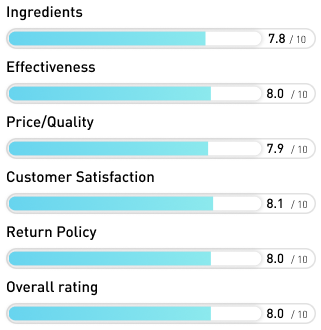
ADVANTAGES
- MCT oil addition for improved absorption
- Uses highly bioavailable MK-7 form of Vitamin K2
- 100 mcg dosage of both Vitamin D3 and K2
- Vegetarian-friendly HPMC capsules
- No gelatine, allergens, or artificial additives.
DISADVANTAGES
- Lower dosage compared to top-ranked product
- More expensive per capsule
- Limited scientific background
- Minimal information on ingredient sourcing
- Higher price point for the provided dosage
CONCLUSION
Hey Nutrition Vitamin D3 & K2 MK-7 is a well-crafted supplement featuring MCT and coconut oil for enhanced absorption. It uses the bioavailable MK-7 form of Vitamin K2 and delivers 100 mcg of both Vitamins D3 and K2 in vegetarian-friendly capsules, making it suitable for general health maintenance.
However, it offers a lower dosage compared to the top-ranked product, is more expensive per capsule, and lacks transparency about ingredient sourcing and scientific backing. While it’s a solid option, it falls short in potency and overall value compared to Vitality Nutritionals.
4th place: Healthspan Super Strength Vitamin D3

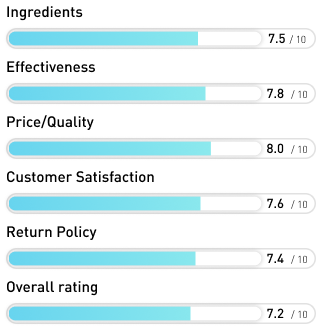
ADVANTAGES
- Added olive oil for absorption
- Vegetarian-friendly and suitable for most diets
- Good availability
- Affordable price point
DISADVANTAGES
- Low dosage (1000 IU)
- Contains artificial additives and fillers like microcrystalline cellulose
- Multiple glazing agents used
- Less optimal tablet form
- Limited third-party testing information
CONCLUSION
Healthspan’s Super Strength Vitamin D3 offers a more basic approach to vitamin D supplementation. While its price point is attractive and the inclusion of olive oil shows attention to absorption, the relatively low dosage and presence of multiple artificial additives make it less ideal for optimal supplementation. The tablet form and absence of vitamin K2 further reduce its effectiveness compared to our higher-ranked options. While it might suit those seeking a budget-friendly maintenance dose, users looking for optimal vitamin D support would be better served by our top-ranked products.
Sources
- Answers from the Robert Koch Institute to frequently asked questions about vitamin D. Robert Koch Institute, published on: 25.01.2019 https://www.rki.de/SharedDocs/FAQ/Vitamin_D/Vitamin_D_FAQ-Liste.html (accessed on: 15.11.2022)
- EU Register on nutrition and health claims
- Schwalfenberg GK. Vitamins K1 and K2: The Emerging Group of Vitamins Required for Human Health. J Nutr Metab. 2017; 2017: 6254836. https://www.ncbi.nlm.nih.gov/pmc/articles/PMC5494092/ (accessed on: November 15, 2022)
- Hohmann-Jeddi C. Case report: How a vitamin D overdose causes damage. Pharmaceutical Journal, published on: 08.07.2022 https://www.pharmazeutische-zeitung.de/wie-eine-vitamin-d-ueberdosis-schaedigt-134209/ (accessed on: 15.11.2022)
- Kuang X, Liu C, Guo X, Li K, Deng Q, Li D. The combination effect of vitamin K and vitamin D on human bone quality: a meta-analysis of randomized controlled trials. Food Function 2020 Apr 30;11(4):3280-3297. https://pubmed.ncbi.nlm.nih.gov/32219282/ (accessed on: November 15, 2022)
- Vitamin D is not a vitamin. MIC Clinic, Berlin https://mic-berlin.de/vitmain-d-ist-kein-vitamin/ (accessed on November 16, 2022)
- Meehan M, Penckofer S. The Role of Vitamin D in the Aging Adult. J Aging Gerontol. 2014 Dec; 2(2): 60–71. https://www.ncbi.nlm.nih.gov/pmc/articles/PMC4399494/ (accessed on: November 16, 2022)
- Traub ML, Finnell JS, Bhandiwad A, Oberg E, Suhaila L, Bradley R. Impact of vitamin D3 dietary supplement matrix on clinical response. J Clin Endocrinol Metab. 2014 Aug;99(8):2720-8. https://pubmed.ncbi.nlm.nih.gov/24684456/ (accessed on: November 16, 2022)

